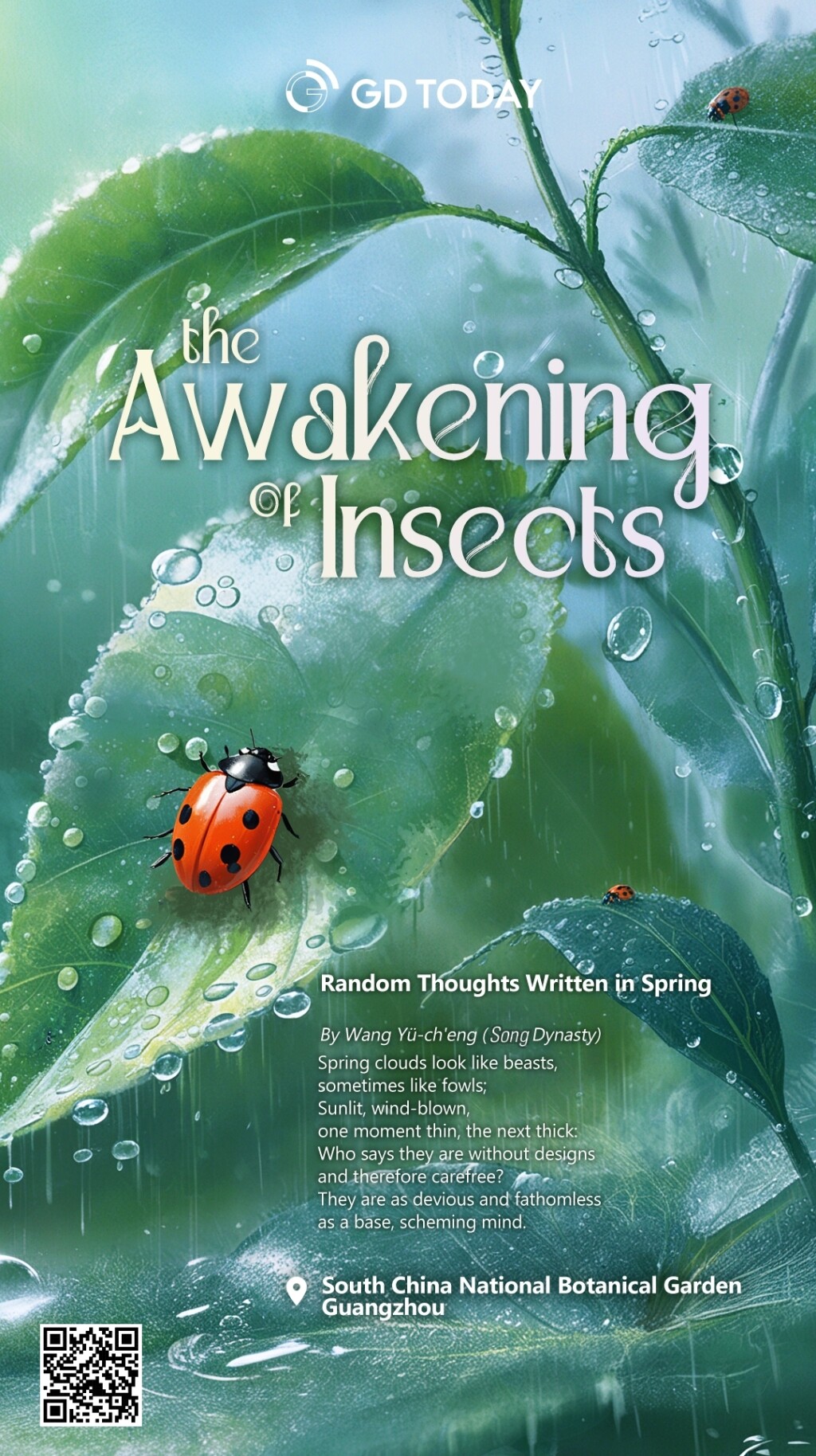
Every March, the solar term Jingzhe (惊蛰) — literally "the Awakening of Insects "—heralds a dramatic shift in East Asia's climate. It signals nature's rebirth: thawing soil, rumbling thunderstorms, and rising humidity awaken hibernating creatures. Nowhere is this transition more vivid than in Guangdong, southern China's subtropical heartland, where spring arrives early and wet.
Guangdong's March temperatures surge to 20-25°C, with humidity climbing steadily. Warm southerly winds collide with lingering cold air, triggering frequent thunderstorms. Meteorologists note that the first "spring thunder" often strikes during Jingzhe, acting as nature's alarm clock for farmers.
The province's rainy season begins to stir, with precipitation rising compared to February. River levels swell, and mist blankets rice terraces—a boon for crops but a challenge as pests multiply rapidly in the warmth. Snakes and rodents also become active, prompting villagers to guard their fields.
For farmers, Jingzhe is a call to action. Rice seedlings are transplanted, tea bushes pruned, and fruit trees fertilized. Yet the humid heat invites trouble: locusts, aphids, and fungi thrive. Many farmers spray lime around storage sheds to deter bugs, a practice rooted in generations of agricultural wisdom.
The season's challenges have inspired customs that blend practicality and symbolism:
"Feeding" Paper Tigers: Paper tiger effigies are offered pork at temples to symbolically tame conflict, reflecting efforts to counter spring's restless energy.
Herb Burning: Families smolder mugwort to repel mosquitoes, adapting ancient pest-control methods to modern needs.
Pear Soup Rituals: Sweet, steamed pears are consumed to combat "spring dryness," a folk remedy tied to abrupt humidity shifts.
Even Hong Kong's "villain beating" ritual—where paper cutouts are struck with shoes—echoes the season's stress and serves as a playful outlet for pent-up frustrations.
Author | Feng Huiting
Editor | Ouyang Yan, Huang Qini, James, Shen He
















